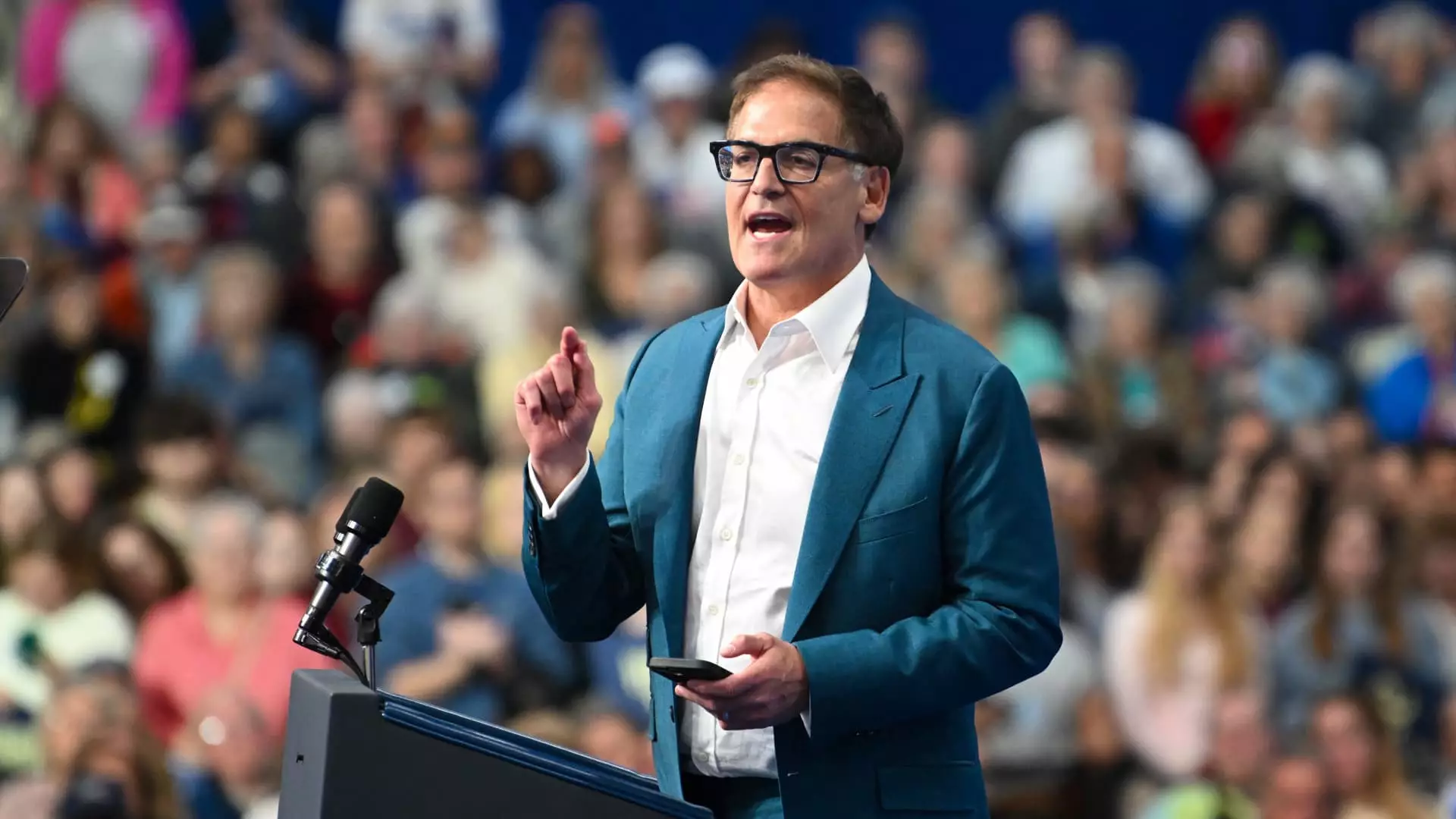In a recent interview with ABC’s “This Week,” billionaire entrepreneur Mark Cuban made it unequivocally clear that he has no intention of trading in his business ventures for a role in politics. Despite his enthusiastic support for Vice President Kamala Harris’s presidential campaign against rival Donald Trump, Cuban has distanced himself from any thoughts of stepping into a governmental role. “I have no interest in being a politician of any type,” he stated, reinforcing his self-identity as a disruptor rather than a politician. This stark declaration serves to underscore the ongoing tension between the allure of political power and the autonomy of private enterprise.
Cuban’s recent statements may appear to contrast with earlier insinuations suggesting that he could entertain a political role, specifically in the capacity of leading the Securities and Exchange Commission (SEC). Back in September, he publicly offered his name as a contender to replace SEC Chair Gary Gensler, whom he criticized for his tenure and regulatory approach. Such remarks hinted that Cuban was at least open to a more profound involvement in government. But his latest comments signal a strategic retreat from that narrative, revealing a nuanced perspective on his political engagement. While his initial musings might have raised eyebrows, they also showcased a billionaire’s typical inclination to assert influence even while rejecting traditional political frameworks.
Cuban has become increasingly vocal as a surrogate for the Harris campaign, participating in rallies and media interviews to bolster her candidacy. His advocacy also comes with a unique twist, as he occasionally presents personal policy ideas that could shape a hypothetical Harris administration. Notably, his suggestions for corporate regulation and antitrust measures demonstrate his willingness to engage in the political dialogue even while disclaiming an intent to occupy a governmental position. This duality brings forth an interesting dynamic: how can a successful entrepreneur effectively advocate for political change without succumbing to the established political paradigm?
One of Cuban’s more controversial recommendations involved calling for the dismissal of Federal Trade Commission Chair Lina Khan, who has emerged as a prominent figure in the consumer-focused antitrust debate. He voiced concern that her aggressive stance on regulating Big Tech could be detrimental rather than beneficial. Cuban’s relationship with regulatory bodies, highlighted by this suggestion, illustrates his robust interest in commerce and technology but simultaneously underscores the tricky balancing act that entrepreneurs must navigate when addressing systemic issues within government bureaucracies.
Ultimately, Mark Cuban’s journey as an entrepreneur and his strategic engagement in the political landscape raise stimulating questions about the role of private sector leaders in public policy. While he firmly claims his role as a disruptor, advocating for disruptive ideas within the political framework, his insistence on avoiding formal political roles may serve as both a personal and philosophical commitment to preserving his autonomy. His narrative conjures a vision of a new kind of political involvement—one where business leaders can influence policy without forsaking their entrepreneurial ethos or becoming ensnared in the limitations of conventional political roles.


Leave a Reply